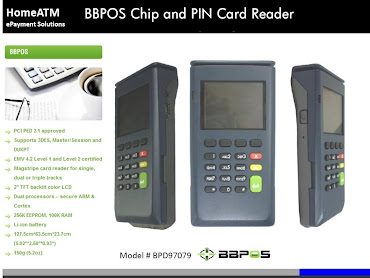 On Friday I posted a press release announcing how the European Parliament wanted to strengthen the security of online payments. Yesterday they met and new rules have been laid out.
On Friday I posted a press release announcing how the European Parliament wanted to strengthen the security of online payments. Yesterday they met and new rules have been laid out. According to information provided by international law firm Pinsent Masons on their their webite: www.out-law.com, yesterday some new Payment Services Regulations were been laid before Parliament. They include (as have I) links to the 81 page 2009 Payment Services Regulations and the Explanatory memo from the HM Treasury.
Here's there report:
The regulation of credit and debit cards and other payment services will be tightened in the UK from November. New rules were laid before Parliament yesterday that aim to deliver greater competition in the market for payment services.
The Payment Services Regulations will apply to everyday payments such as cash deposits and withdrawals, credit transfers, direct debits, credit and debit card payments, money remittance payments and other digital payment services.
The Regulations implement the EU's Payment Services Directive (PSD) of 2007 into UK legislation. They are due to come into force on 2nd March 2009 and the PSD regulatory regime will be in place on 1st November 2009. The Financial Services Authority will be the regulator for most aspects of the regime.
The Directive stipulates the information that providers must give or make available to their customers before, during and after a transaction is made, for example, how long the payment will take to get to the recipient, and ensuring they are informed of the exchange rate and charges for any currency conversions prior to initiation.
It introduces a maximum one-month notice period for customers to be able to terminate a payment service contract with their provider, with no charges allowed for terminating a contract after 12 months.
The Directive also establishes what users must do, for instance in protecting their PIN number, and what providers must do, for instance in ensuring there is a phone line or other means of contact for the user at all times, in the event that their payment card is lost or stolen. The rules also explain what happens when things go wrong with a payment, providing refund rights for disputed payments, and set out the circumstances in which the payment service provider (e.g. the bank) will be liable.
The new Regulations affect domestic payments made in Sterling, in Euro and other non-Euro EU currencies, as well as cross-border EU payments from Sterling and other non-Euro EU currencies into Euro.
Lord Myners, Financial Services Secretary to the Treasury, said: "This legislation will drive competition in the market for payment services, leading to greater efficiency, transparency and more innovation, bringing further benefits and certainty to UK consumers and businesses making everyday payments."
"It will also enhance consumer protection, with the new rules for payment service providers," he said.
The PSD will also enable UK-based, non-bank businesses to enter and compete in the EU payments market on the basis of a licence obtained from the FSA in the UK. Licensing requirements are based on a prudential authorisation regime. Small firms operating in the UK only will only need to register with the FSA, and comply with the relevant anti-money laundering supervisory requirements.
The legislation also introduces statutory EU-wide conduct of business rules, requiring providers to properly inform their customers about the payments they are making, and rights and responsibilities for providers and users, to increase certainty about the way payments will be delivered.
The FSA will shortly be issuing guidance for businesses.
Payment Services Regulations 2009 (81-page / 332KB PDF)
Explanatory memo from HM Treasury (33-page / 163KB PDF)









0 comments